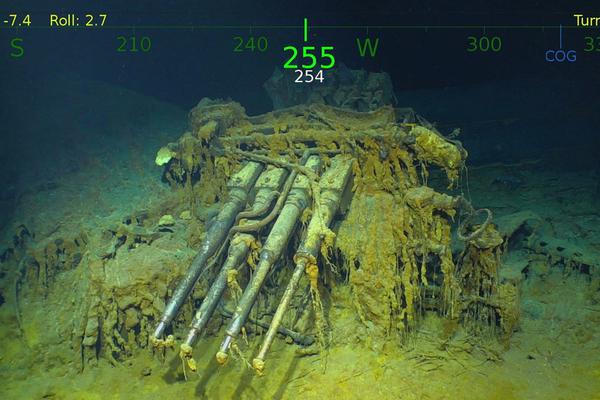
1. The five functions of the operating system are processor management, memory management, device management, file management and job management. Processor management The most basic function of processor management is to process interrupt events. After configuring the operating system, various events can be processed.
2. The main function of the computer operating system is process management, and its work is mainly process scheduling. In the case of a single user and a single taskNext, the processor is only monopolized by one user's task, and the process management work is very simple.
3. Operating System (abbreviation: OS) is a group of interrelated system software programs that supervise and control computer operation, use and run hardware, software resources and provide public services to organize user interaction.
4. Five major management functions of the operating system: (1) Job management: including tasks, interface management, human-computer interaction, graphical interface, voice control and virtual reality, etc. ( 2) File management: also known as information management. ( 3) Storage management: The essence is the management of storage "space", which mainly refers to the management of the main memory.
Any information system has five basic functions, namely: information collection and recording (input); information storage; information processing; information transmission; information output .
According to the functional introduction of the information system, the information system has five basic functions: input, storage, processing, output and control. Different functions have different functions, such as input function: the input function of the information system is determined by the purpose to be achieved by the system, the ability of the system and the permission of the information environment.
Five basic functions of the information system: input, storage, processing, output and control. Input function: The input function of the information system is determined by the purpose to be achieved by the system, the ability of the system and the permission of the information environment.Storage function: Storage function refers to the ability of the system to store various information and data. Mainly including: statistical functions.
The operating system has five functions: processor management: mainly controls and manages the work of the CPU. Storage management: mainly allocate and manage memory. Device management: mainly manage basic input and output devices. File management: responsible for the organization, storage, operation and protection of computer files.
The functions of the computer operating system include: processor management, memory management, device management, file management, job management and other functional modules. Processor management. The most basic function of processor management is to handle interrupt events. The processor can only detect interrupt events and generate interrupts and cannot process them.
The main function of the computer operating system is process management, and its main work is process scheduling. In the case of a single user and a single task, the processor is only monopolized by one user's task, and the work of process management is very simple.
The main functions of the operating system are process and processor management, job management, storage management, device management and file management, as follows: process and processor management. Because the execution of the program must rely on the processor, only one program flow can be processed and executed at any time. Homework management.
I) Processor management The most basic function of processor management is to handle interrupt events. The processor can only detect interrupt events and generate interrupts, and cannot handle these interrupt events. After configuring the operating system, all types of events can be handled.Another function of processor management is processor scheduling.
Five management functions of the operating system: job management: including tasks, interface management, human-computer interaction, graphical interface, voice control and virtual reality, etc. File management: also known as information management. Storage management: The essence is the management of storage "space", which mainly refers to the management of the main memory.

The storage management function of the operating system is to manage memory resources. It mainly realizes memory allocation and recovery, storage protection and memory expansion. The device management of the device management operating system is responsible for allocating and recycling external devices, and controlling external devices to operate according to the requirements of user programs.
The functions of the computer operating system include: processor management, memory management, device management, file management, job management and other functional modules. Processor management. The most basic function of processor management is to handle interrupt events. The processor can only detect interrupt events and generate interrupts and cannot process them.
The five functions of the operating system are processor management, memory management, device management, file management and job management.Processor management The most basic function of processor management is to process interrupt events. After configuring the operating system, various events can be processed.
TNT Sports-APP, download it now, new users will receive a novice gift pack.
1. The five functions of the operating system are processor management, memory management, device management, file management and job management. Processor management The most basic function of processor management is to process interrupt events. After configuring the operating system, various events can be processed.
2. The main function of the computer operating system is process management, and its work is mainly process scheduling. In the case of a single user and a single taskNext, the processor is only monopolized by one user's task, and the process management work is very simple.
3. Operating System (abbreviation: OS) is a group of interrelated system software programs that supervise and control computer operation, use and run hardware, software resources and provide public services to organize user interaction.
4. Five major management functions of the operating system: (1) Job management: including tasks, interface management, human-computer interaction, graphical interface, voice control and virtual reality, etc. ( 2) File management: also known as information management. ( 3) Storage management: The essence is the management of storage "space", which mainly refers to the management of the main memory.
Any information system has five basic functions, namely: information collection and recording (input); information storage; information processing; information transmission; information output .
According to the functional introduction of the information system, the information system has five basic functions: input, storage, processing, output and control. Different functions have different functions, such as input function: the input function of the information system is determined by the purpose to be achieved by the system, the ability of the system and the permission of the information environment.
Five basic functions of the information system: input, storage, processing, output and control. Input function: The input function of the information system is determined by the purpose to be achieved by the system, the ability of the system and the permission of the information environment.Storage function: Storage function refers to the ability of the system to store various information and data. Mainly including: statistical functions.
The operating system has five functions: processor management: mainly controls and manages the work of the CPU. Storage management: mainly allocate and manage memory. Device management: mainly manage basic input and output devices. File management: responsible for the organization, storage, operation and protection of computer files.
The functions of the computer operating system include: processor management, memory management, device management, file management, job management and other functional modules. Processor management. The most basic function of processor management is to handle interrupt events. The processor can only detect interrupt events and generate interrupts and cannot process them.
The main function of the computer operating system is process management, and its main work is process scheduling. In the case of a single user and a single task, the processor is only monopolized by one user's task, and the work of process management is very simple.
The main functions of the operating system are process and processor management, job management, storage management, device management and file management, as follows: process and processor management. Because the execution of the program must rely on the processor, only one program flow can be processed and executed at any time. Homework management.
I) Processor management The most basic function of processor management is to handle interrupt events. The processor can only detect interrupt events and generate interrupts, and cannot handle these interrupt events. After configuring the operating system, all types of events can be handled.Another function of processor management is processor scheduling.
Five management functions of the operating system: job management: including tasks, interface management, human-computer interaction, graphical interface, voice control and virtual reality, etc. File management: also known as information management. Storage management: The essence is the management of storage "space", which mainly refers to the management of the main memory.

The storage management function of the operating system is to manage memory resources. It mainly realizes memory allocation and recovery, storage protection and memory expansion. The device management of the device management operating system is responsible for allocating and recycling external devices, and controlling external devices to operate according to the requirements of user programs.
The functions of the computer operating system include: processor management, memory management, device management, file management, job management and other functional modules. Processor management. The most basic function of processor management is to handle interrupt events. The processor can only detect interrupt events and generate interrupts and cannot process them.
The five functions of the operating system are processor management, memory management, device management, file management and job management.Processor management The most basic function of processor management is to process interrupt events. After configuring the operating system, various events can be processed.
 UEFA Champions League
UEFA Champions League
992.11MB
Check Europa League app
Europa League app
759.75MB
Check bingo plus update today Philippines
bingo plus update today Philippines
944.19MB
Check Hearthstone deck
Hearthstone deck
182.75MB
Check UEFA live free
UEFA live free
834.43MB
Check DigiPlus stock
DigiPlus stock
156.56MB
Check Arena plus APK
Arena plus APK
334.23MB
Check Free sports events uefa champions league app android
Free sports events uefa champions league app android
455.71MB
Check UEFA Champions League live streaming app
UEFA Champions League live streaming app
264.38MB
Check Casino Plus login register
Casino Plus login register
931.73MB
Check DigiPlus stock
DigiPlus stock
741.49MB
Check UEFA Champions League standings
UEFA Champions League standings
815.26MB
Check TNT Sports
TNT Sports
243.34MB
Check Casino Plus app
Casino Plus app
258.67MB
Check DigiPlus
DigiPlus
649.29MB
Check PAGCOR online casino free 100
PAGCOR online casino free 100
967.45MB
Check Casino redeem
Casino redeem
284.96MB
Check bingo plus update today Philippines
bingo plus update today Philippines
348.84MB
Check UEFA Champions League live streaming app
UEFA Champions League live streaming app
668.36MB
Check bingo plus update today Philippines
bingo plus update today Philippines
858.14MB
Check Europa League app
Europa League app
456.69MB
Check Free sports events uefa champions league app android
Free sports events uefa champions league app android
219.12MB
Check Casino Plus free 100
Casino Plus free 100
839.56MB
Check UEFA live free
UEFA live free
559.67MB
Check Europa League app
Europa League app
254.53MB
Check UEFA TV
UEFA TV
461.31MB
Check Walletinvestor digi plus
Walletinvestor digi plus
151.73MB
Check Hearthstone deck
Hearthstone deck
146.19MB
Check Arena plus APK
Arena plus APK
248.25MB
Check DigiPlus fair value
DigiPlus fair value
381.84MB
Check DigiPlus
DigiPlus
298.44MB
Check casino plus free 100
casino plus free 100
188.64MB
Check Hearthstone Arena win rate
Hearthstone Arena win rate
692.57MB
Check Casino Plus login register
Casino Plus login register
651.77MB
Check UEFA TV
UEFA TV
292.32MB
Check UEFA EURO
UEFA EURO
752.19MB
Check
Scan to install
TNT Sports to discover more
Netizen comments More
471 UEFA Champions League standings
2025-02-05 21:40 recommend
1308 Hearthstone deck
2025-02-05 21:06 recommend
695 Champions League
2025-02-05 20:53 recommend
2174 Hearthstone arena class win rates reddit
2025-02-05 20:43 recommend
129 Casino Plus
2025-02-05 20:08 recommend